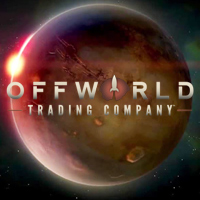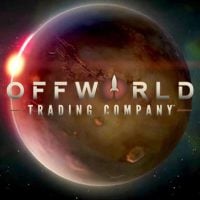Offworld Trading Company Review – raging capitalism on the Red Planet
Offworld Trading Company provides a breath of fresh air much needed by the RTS genre. Developed by Soren Johnson’s Mohawk Games, this game lets you conquer Mars using stocks, industrial sabotage, price wars, and book cooking. And it's fun!
The review is based on the PC version.
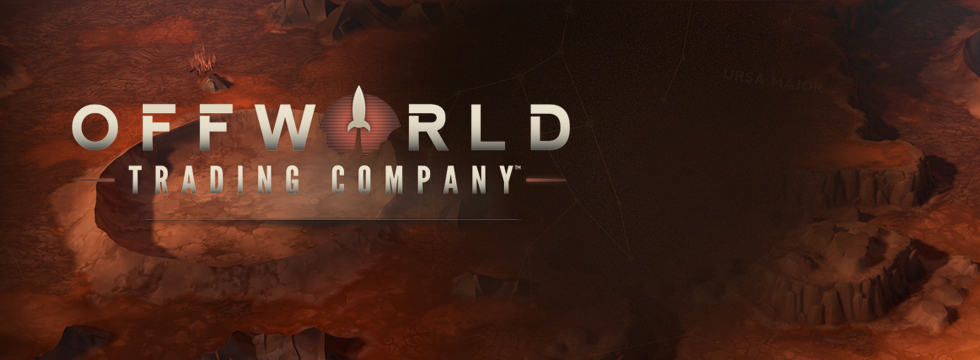
- "something new";
- complex economic dependencies;
- great variety of available actions;
- humor;
- features a narrative tutorial;
- comic book-inspired character designs.
- dull story campaign with no interesting plot;
- unbalanced sabotage options.
Given the fact that Soren Johnson took custody of this project, it was only natural to expect a product that will be at least good, and in any case original. And it certainly is. The game can be described as an economic RTS in which our task is to wipe our enemy off the face of... Mars, but we have to achieve this only using our money. The game was developed by the team at Mohawk Games, the studio founded by Soren Johnson – one of the main designers for the third and the fourth part of Civilization, who also participated in the creation of Spore. On the one hand, we have a solid strategy game boasting an iconic status, on the other, a game that was remarkable and one-of-a-kind. Can Offworld Trading Company become both?
Creativity and humor
For starters, the game's story and background come off as very interesting, perhaps even a bit too creative for a typical strategy game. In an unspecified future, our species began colonizing the planet Mars. The colonists have needs that have to be met by, for example, producing electricity or electronics, or providing basic goods such as food, water, and oxygen. And this is where we, as the chairman of a company, spot an opportunity to turn some profit. The thing is, we are not dealing with a government-sponsored space program, the objective of which would be the development of a new human settlement. Instead, we have four corporations unleashed, like a pack of hungry wolves, on a fresh, unknown market, hoping for some cash up for grabs. There's greed dripping from each of the contestants, leading to a local conflict that can end only with one of them achieving a monopoly. Each company is unique – led by distinct leaders whose different traits provide different benefits for their corporation. The Expansionists are given greater rights to land, thanks to their negotiation skills. Robotic factories do not have to meet the biological needs of their employees. The Scavengers have better contacts with the underworld, and the Scientists have access to special buildings. Although this may all sound very serious, the game delivers a substantial dose of humor, sometimes a little pushy, but all in all the impression is positive. Moreover, each company has an exclusive set of jokes.
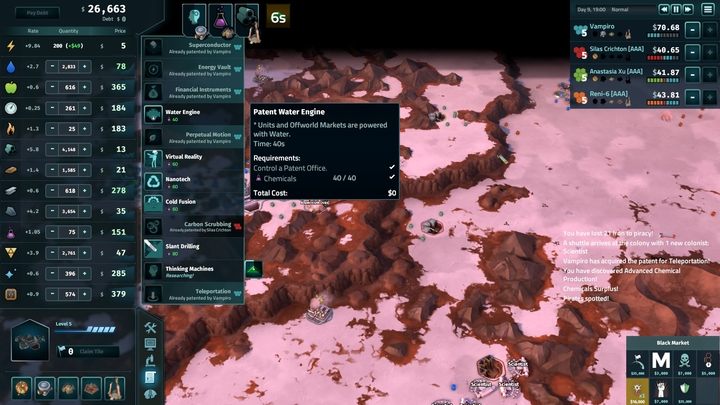
The said humor is best seen in the tutorial, which is a well-designed set of several lessons leading us from complete lack of knowledge of the game mechanics to complete familiarity. It also serves as the initial atmosphere building factor and a crucial introduction to the game's plot, because in campaign the story elements are, unfortunately, altogether missing. The tutorial encompasses seven missions, six of which feature objectives different from standard skirmishes, where the ultimate goal is to buy up the competition and acquire their market in the colony. The campaign, however, focuses mainly on purchasing habitats and providing jobs for the colonists, spoiling the element of competition, which is prominent in other modes. Between the missions we can decide which earthly superpower do we want to cooperate with (e.g. USA or China), providing us with bonuses depending on the choice, as well as hire employees for future jobs.
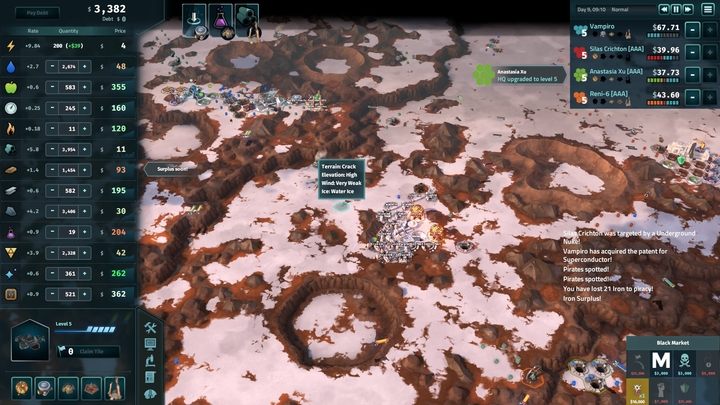
Economy in full swing
Both the skirmish and the multiplayer mode emphasize competition as the main idea around which the game is centered. Winning or losing is determined by whether we manage to buy the other company or we are taken over on the stock market. The share prices are affected by virtually everything we do, and the number of possibilities is vast. This makes the game extremely complex, which does not, however, equal overwhelming. The interface is both clean and pleasant to the eye, and the sequence of player’s actions is enforced by a system of concessions, preventing the player from getting lost during the skirmishes. This system is also one of the most important elements that have to be taken into account during the game. Building on Mars is not something we can do as much as we like. Each structure requires space for development, which, in turn, cannot to be acquired without consent from the colony officials. In practice, we have to get a set of permissions each time we expand our planetary headquarters. The expansion itself requires many resources (e.g. aluminum, steel, and glass), and although initially the quantities are manageable, further improvements consume enormous amounts of raw materials. And we are kind of forced to expand because it is impossible to conquer the Red Planet without having large amounts of land at one's disposal.
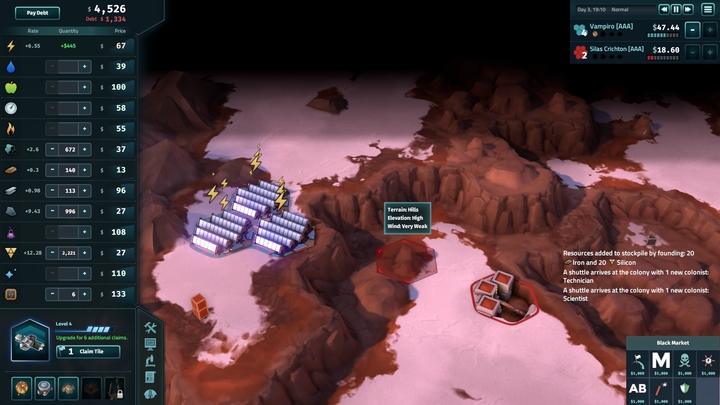
Land ownership is needed to operate mines, quarries, power plants, glass furnaces, and many others. They extract or produce a total of thirteen commercial goods. It is worth noting that some of them are consumed by the employees, who also need something to drink, to eat, and to breathe. Providing them ourrselves turns out to be the better option, because if we are forced to buy e.g. oxygen on the market it will be, almost literally, a hell to pay – at first; it will become even worse in time, as the prices are determined according to supply and demand. Mechanics of the free market mechanisms are, without a doubt, the gem of this title. We can not possibly hope to get a good price for our goods if we flood the market with them, and if we are forced to buy something in large quantities, we are unavoidably going into the red. Debts, in turn, may be the nail to our coffin, as they lower our credit rating, and subsequently the price of our shares. Which puts us in a rather uncomfortable situation of being one step from a takeover. The rating can be saved by repaying our debts, or other, not necessarily legitimate, moves. The black market offers things like the ability to falsify the books and put some make up on the financial image of our company. What's more, we can use bribes to gain additional concessions, or even resort to terrorism by hiring pirates or unleashing an EMP attack on opponent's installations. Options available on the black market can provide significant advantage, and their cost is negligible (at least initially). Their impact on the game, however, seems to be a bit too significant and, instead of being a pleasant addition to economic warfare, they often become an end in themselves.
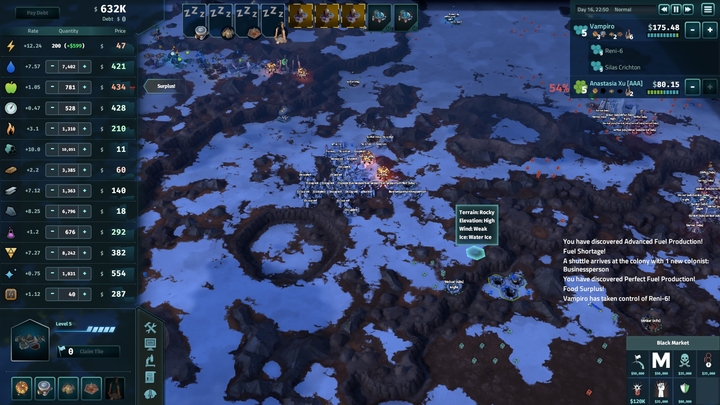
In later stages, we get access to buildings that can considerably tip the scales in either our or the rival's favor. They are expensive, but worth the price. Patent office allows the development of technologies straight from science fiction movies, for example resource teleportation or the ability to power everything with water. Hackers are able to manipulate prices in the markets and their services are definitely not cheap, but as a price for efficient production of some goods it can be worthwhile. Even the colonists are a potential source of income. Those poor, hard-working ants living in constant stress will pay serious money for entertainment provided by special domes. The biggest gains, however, should be expected from trading with the facilities in the orbit. The orbit is often ready to pay much more for some commodities (usually oxygen; gee, I wonder why...) and meeting its expectations can be very rewarding. Offering such a large number of ways one can profit from, the game allows for a good deal of creativity, and two skirmishes will rarely play out similar, especially in multiplayer, where the two players can adopt radically different styles, and a winning strategy must take opponents actions into account.
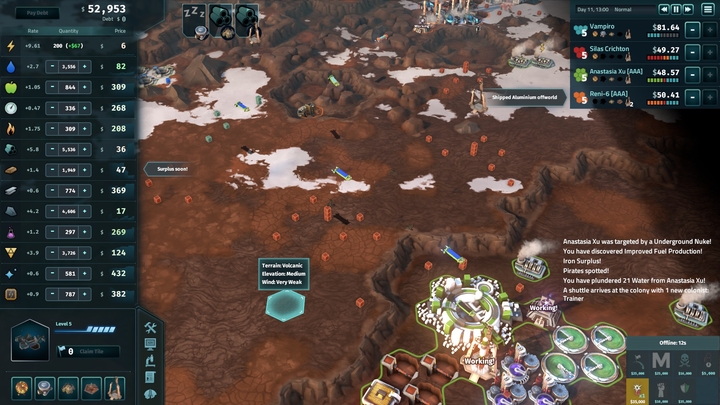
Something for the eye, something for the ear
The visual experience is decent or better, as long as we are talking about artistic value rather than technology. Owners of older computers will be delighted by the game's low hardware requirements. Design of the buildings is interesting, aesthetically pleasing, and well contrasted with the rusty color palette of Mars. Additional flavor stems from the fact that the maps are modeled after the actual surface of the Red Rlanet. In between the missions we can see comic book-style drawings of the corporation leaders, which fits the game's overall sense of humor to a T. All of the above is accompanied by a music that seems like a rather puzzling choice; on the one hand the music perfectly highlights the solemnity of the moment when humanity begins their journey to the stars, and on the other comes off as contrasting with the lighthearted side of the product.
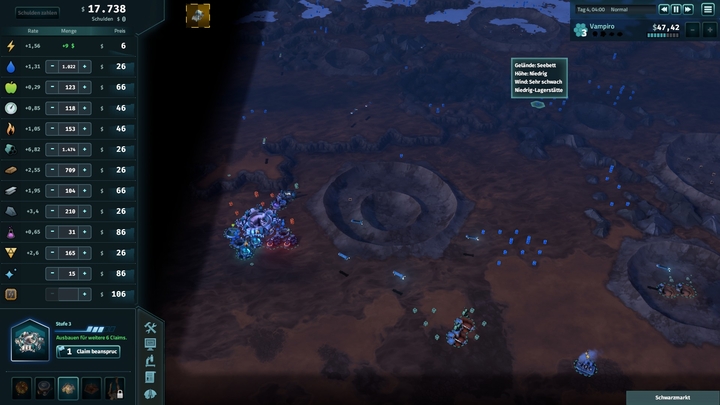
Summary
If we exclude one 30-year old game, it can be argued that Offworld Trading Company blazes new trails in the RTS genre. While we have a plethora of titles following the "build a building, arm an army, overpower the opposition" pattern, they are slowly running out of original solutions. The featured title introduces exactly such a breath of fresh air. Furthermore, it does so with style and momentum, offering excellent, well designed gameplay that rewards the players for creativity and teaches them the complexity of economic dependencies. All of this happens in the background, though, leaving the person in front of the monitor with only the most interesting gameplay elements, and a plenty of options to choose from. Let us hope that this well-made piece of work from Mohawk Games will inspire other creators to develop equally original ideas.
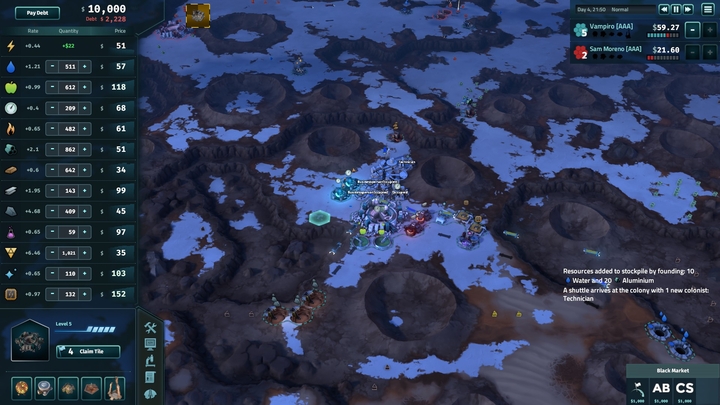
Offworld Trading Company
Offworld Trading Company provides a breath of fresh air much needed by the RTS genre. Developed by Soren Johnson’s Mohawk Games, this game lets you conquer Mars using stocks, industrial sabotage, price wars, and book cooking. And it's fun!
